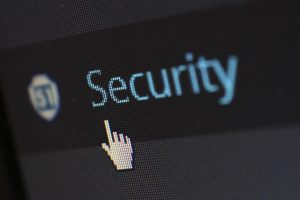Staying safe online is more than just using strong passwords and not sharing your personal unsecured data over the internet. Organizations and businesses need to take precautions to protect their data, and the personal information of their users as well. Everything from identity theft to ransomware to data leaks and more is possible on the internet — which is why security is so important, both for individuals and businesses.

Good security also helps prevent SSRF, or Server-Side Request Forgery, which is an attack that can let hackers access sensitive data like passwords, personal information databases, and source codes for websites. Pentesting can look for weaknesses that a hacker might try to exploit with an SSRF.
When you’re online, make sure your wifi connection is secure. Try to avoid open, public hotspots or unsecured networks when you’re working or browsing private sites, or checking your bank account online.
Here are five additional tips everyone should implement to stay safe while online.
1. Keep Your Browsers Up to Date
Making sure you have the latest updates to your browser is a good first step in keeping your data secure — and private — when online. Also, remember to update your operating system when prompted, so any bug fixes or security flaws are automatically fixed.
2. Use Your Firewalls Properly
Check that your computer’s firewall is operational and properly set up. If you regularly send and receive sensitive data or work online, set up a VPN as well for added security.
3. Password Protection 101
Remember: Never share your passwords with anyone. Many scams and phishing ploys ask you to give out your username or password, or other sensitive information. Use a strong password, and utilize a master password keychain if you have a lot of different passwords that might be hard to remember. You should also change your passwords regularly for added protection.
4. Watch Out For Scams
If you get an email with unusual spelling, grammar, or requests for sensitive or personal data, delete them as spam. It’s most likely a scam or phishing attempt. If the sender’s name is listed as a reputable company, double-check that the email address matches the official address, which you can usually find on the company’s website. If in doubt, do not reply and contact the company via a new email or contact form.
This also applies to text messages and phone calls. Your bank will never ask you for your account number or password. If you receive a message that asks for this information, hang up or delete the message and contact your bank directly for confirmation.
Scams don’t just come through emails or texts – they can appear as fraudulent websites designed to steal your information. Before entering any personal or payment details online, take a moment to verify that the website is legitimate. You can use an 정리된 주소 (also known as organized address) collection, which lists websites that have already been reported as unsafe or suspicious, to help you decide whether it’s safe to proceed. If you come across a scam site, reporting it helps protect others by adding it to the list. A few extra seconds of caution can go a long way in preventing online fraud.
5. Shop Securely
When you shop online, you’re probably looking for great deals and specific purchases. But how do you make certain your credit card information is being transmitted securely and that your data won’t get stolen? Make sure the website uses “HTTPS” in the URL. The “s” is for Secure, and a tiny padlock symbol or a similar icon should be visible in the site address. If you don’t see this, think again before continuing with your purchase.
Stay safe and secure online, no matter what you’re doing on the internet.
